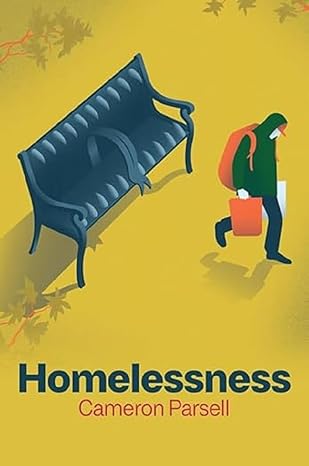Homelessness is a punishing condition that inflicts unquestionable harm on those who experience it. It is also a social problem that starkly lays bare deep societal failure.
As Cameron Parsell shows, society – along with the public policy measures intended to address it – treats being homeless as an identity, casting those who experience homelessness as fundamentally different from “us.” To be homeless is to face daily victimization, to be a recipient of someone else’s care, and to have autonomy taken away. Parsell argues that we have at our disposal the knowledge and momentum to demonstrably reduce and even end homelessness. Our first task is to confront the fact that homelessness is a relatively predictable phenomenon that disproportionately impacts people who are failed by society in myriad ways. We must respond to the problem in ways that understand and thus do not recreate the dehumanizing conditions experienced by those who are homeless. Homelessness is a choice: of how we organize society.
Sketching the defining features of homelessness, this critical introduction will be a valuable resource for students studying homelessness, housing, marginality, and poverty across the social sciences and social work.









Be the first to review “Homelessness – A Critical Introduction”